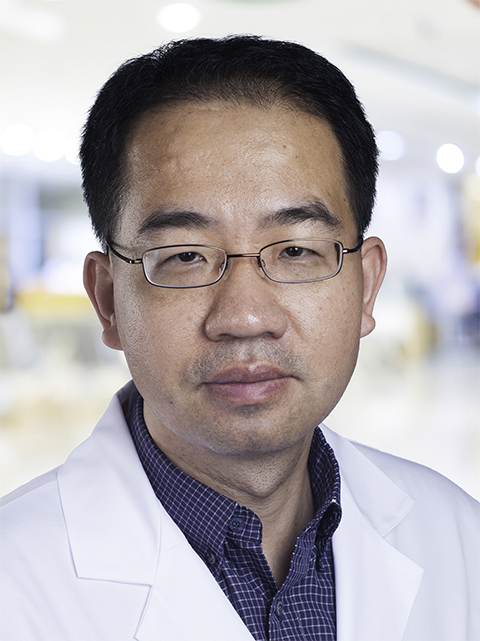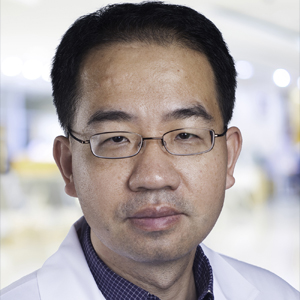
A good place to live and to study cancer
After completing my postdoctoral training at the University of California, San Diego, I received an attractive offer to work in San Antonio. I am now an associate professor in the molecular medicine department at the University of Texas Health Science Center at San Antonio.

Dynamic control of enhancer repertoires drives stage-specific transcription during tissue development and disease progression. My lab’s overall objective is to gain a fundamental understanding of the regulations of enhancer dynamics in response to signaling and their effects on gene regulation, leading to innovative approaches to prevent and treat enhancer-related diseases, especially cancers.
I wanted to work in this city for several reasons. First, Texas offers substantial start-up funding for researchers across various disciplines to study cancer. As a new PI who recently concluded postdoctoral training and was recruited as a tenure-track faculty member, I received a $2 million start-up grant from the Cancer Prevention and Research Institute of Texas, known as CPRIT. Also, San Antonio is a military city and many people choose to stay after retiring. This ensures abundant clinical resources for researching aging and cancer.
San Antonio also has historical significance and is a vibrant tourist destination, with attractions such as the River Walk and the Alamo. As the seventh-largest city in the U.S., San Antonio offers the advantages of a major urban center while providing a high quality of life due to its affordability and favorable traffic conditions.
My wife is also a PI, researching neuronal diseases. She and I have been immensely content working and living in San Antonio since we moved here from San Diego. Our two young daughters find a lot of fun things to do in this city. Besides working hard in the lab, we often take our daughters out to eat good food, visit the attractions and play at the SeaWorld or Six Flags amusement parks on weekends.
Submit an abstract
Discover BMB, the annual meeting of the American Society for Biochemistry and Molecular Biology, will be held March 23–26 in San Antonio. Abstracts for poster presentations and spotlight talks will be accepted through Nov. 30. See the poster categories and spotlight talk themes.
Enjoy reading ASBMB Today?
Become a member to receive the print edition four times a year and the digital edition monthly.
Learn moreGet the latest from ASBMB Today
Enter your email address, and we’ll send you a weekly email with recent articles, interviews and more.
Latest in People
People highlights or most popular articles

Chemistry meets biology to thwart parasites
Margaret Phillips will receive the Alice and C. C. Wang Award in Molecular Parasitology at the ASBMB Annual Meeting, March 7-10 in Washington, D.C.

ASBMB announces 2026 JBC/Tabor awardees
The seven awardees are first authors of outstanding papers published in 2025 in the Journal of Biological Chemistry.

Decoding how bacteria flip host’s molecular switches
Kim Orth will receive the Earl and Thressa Stadtman Distinguished Scientists Award at the ASBMB Annual Meeting, March 7–10, just outside of Washington, D.C.

Thiam elected to EMBO
He was recognized during the EMBO Members’ Meeting in Heidelberg, Germany, in October.

The timekeepers of proteostasis
Learn about the cover of the winter 2026 ASBMB Today issue, illustrated by ASBMB member Megan Mitchem.

Defining JNKs: Targets for drug discovery
Roger Davis will receive the Bert and Natalie Vallee Award in Biomedical Science at the ASBMB Annual Meeting, March 7–10, just outside of Washington, D.C.

